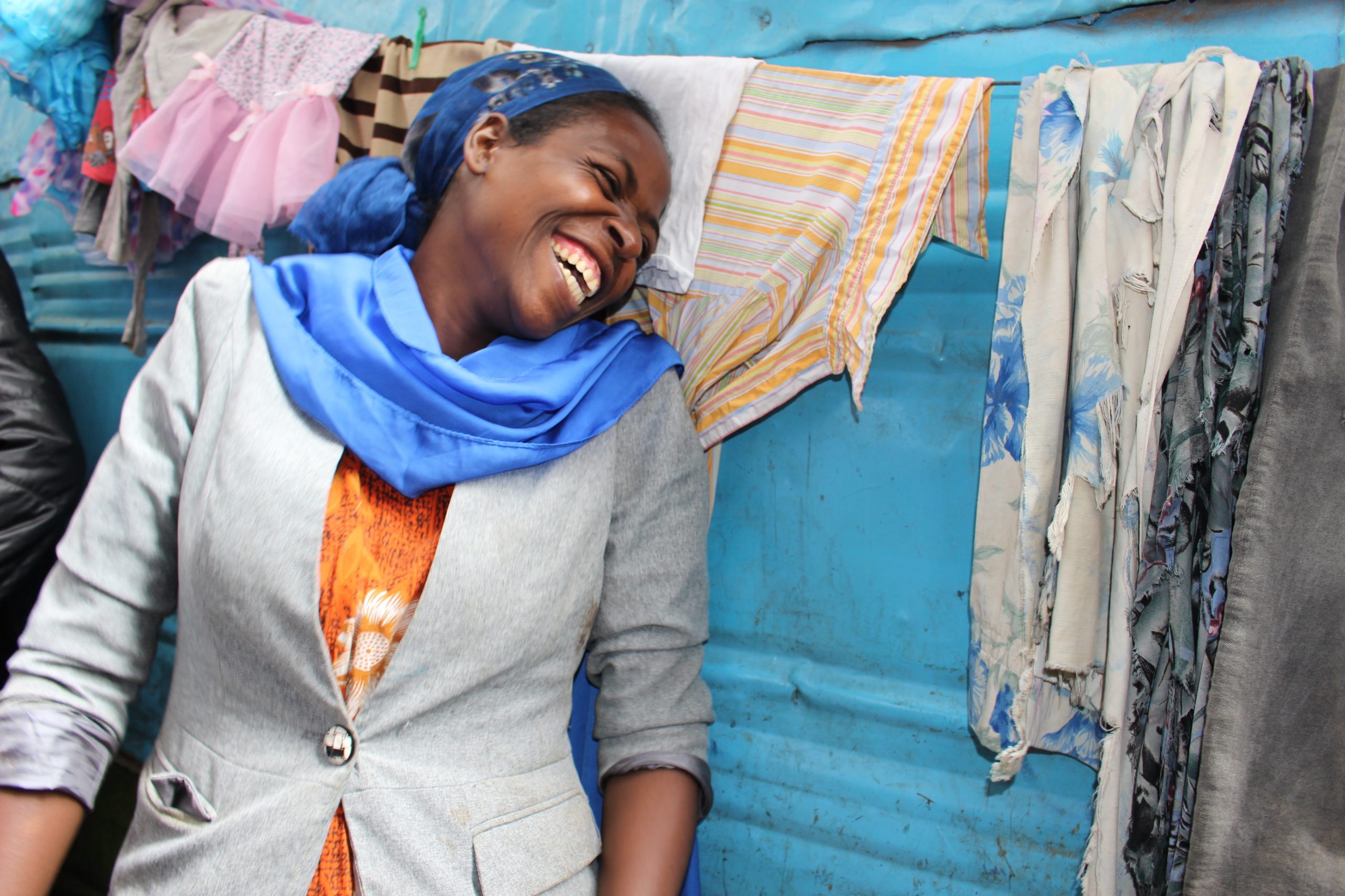By Jacob Bonyo, Country Director
I have always considered myself lucky to work in an office with “the best view in the world.” The RefugePoint office isn’t located in an exceptionally breathtaking part of Nairobi. We don’t look out of the window and see awe-inspiring vistas. Nor do we have mountainous backdrops or pristine beaches outside our office. In fact, our office is located in a typical office building for the area. Instead, we have a varied mix of people from different cultures, who are at vastly different positions in life walking through our doors on an almost daily basis. We work with vulnerable refugees and Kenyans at the RefugePoint office and support them to become self-reliant.
When refugees first come to RefugePoint, they are often at their lowest emotionally and are severely vulnerable. The overwhelming majority cannot afford to provide for themselves and their loved ones—the basic things you and I take for granted. Many are struggling to get a place to live, a plate of food, access to medical care, mental health support, and education for their children. The weight of these unmet basic needs has a physical and psychological effect, and you can see the impact as you engage with clients. It’s disheartening to observe the hesitancy, desolation, the physical toll of countless skipped meals (or, in worst-case scenarios, days without eating), and the indignity of having to ask for assistance. With this in mind, RefugePoint’s self-reliance program is centered on empathy and dignity.
At RefugePoint, we first identify the most vulnerable refugees and Kenyans. Once identified, we link each individual who joins the program with a case manager. The case manager assists the individual in navigating the support available, providing necessary internal and external referrals to ensure the clients receive timely assistance. RefugePoint supports these households with basic stabilizing services such as help to find safe housing, a monthly food basket, assistance to access essential medical care, and enrolling and keeping children in schools. Once stable, we work with the households to develop a plan to build their social capital through case mentoring, counseling, psychological therapy support, and encouraging social linkages through participation in networking groups. We also work with the family to build economic capital through livelihoods training, business start-up or expansion grants, business monitoring, and mentoring support. When households can independently meet their needs, they graduate out of the program.
We refer to this entire process as the self-reliance runway, and the majority of our clients go through this process over 24 months on average. Two years is a long time. It is enough time to get to know someone as an individual and learn their hopes, fears, dreams, and losses. It is incredible to see the transformation in individuals’ bearing and outlook throughout the self-reliance journey, from desolate people to confident and hopeful for their prospects. Initial hesitancy is replaced with determination and a sense of purpose as clients generate their own income and provide for themselves and their loved ones. Enthusiasm over prospects replaces the initial hopelessness, as in the case of the refugee who we supported to chase his dream of becoming a DJ.
Seeing someone undergo this transformation in human spirit, from vulnerability to self-reliance, is what I refer to as the ‘best view in the world.’ I am lucky to work at an office where I get to experience this view repeatedly.
